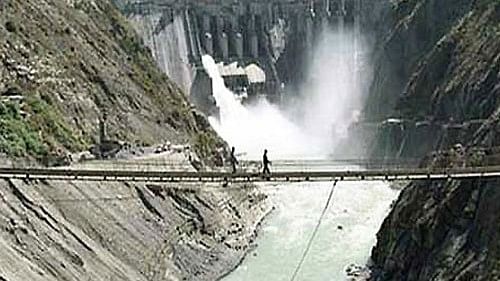
Representative image.
Credit: Reuters Photo
Srinagar: The completion of the Shahpur-Kandi barrage has effectively ceased the flow of water from the Ravi river into Pakistan due to which over 32,000 hectares of land of the Kathua and Samba districts of Jammu and Kashmir will be irrigated now, according to a report.
The Shahpur-Kandi barrage, which is crucial for irrigation and hydropower generation, has faced numerous challenges over the past three decades. The foundation stone for the Shahpur Kandi Barrage Project was laid by former Prime Minister P V Narasimha Rao in 1995.
However, the project faced many hurdles from beginning, due to the dispute between the governments of J&K and Punjab.
In December 2018, the Central government approved the project and work was restarted on it.
Local English newspaper Daily Excelsior quoting unmanned sources reported that after the completion work of the barrage, the process of stopping water at Shahpur began.
According to the Indus Water Treaty (IWT), signed in 1960 between India and Pakistan, India has an exclusive right over waters of the Ravi, Sutlej, and Beas rivers whereas Pakistan has full access to the Indus, Jhelum, and Chenab rivers.
Now as the IWT, India can make maximum use of Ravi river and the water which earlier used to flow towards Pakistan from old Lakhanpur dam, raised to divert river water to Madhopur Canal, will now be used in J&K and Punjab.
The completion of the project will not only irrigate land, but also generate about 206 MW of electricity besides attracting tourists to the site. Punjab would be the major beneficiary of the power generated from this project.
Executive Engineer, Ravi Tawi Irrigation Complex (RTIC), Ajit Kumar confirmed that a pondage process has been started and the water from Ranjeet Sagar Dam is being released for Shahpur-Kandi barrage in a systematic manner.
The required height of Shapur Kandi dam will be attained within 90 days, he said.
India has already constructed several storage works, including Bakra Dam on the Sutlej, Pong and Pandoh Dam on the Beas, and Thein (Ranjitsagar) on the Ravi. The IWT provisions enable India to establish storage facilities on the western rivers, further enhancing its water management capabilities.